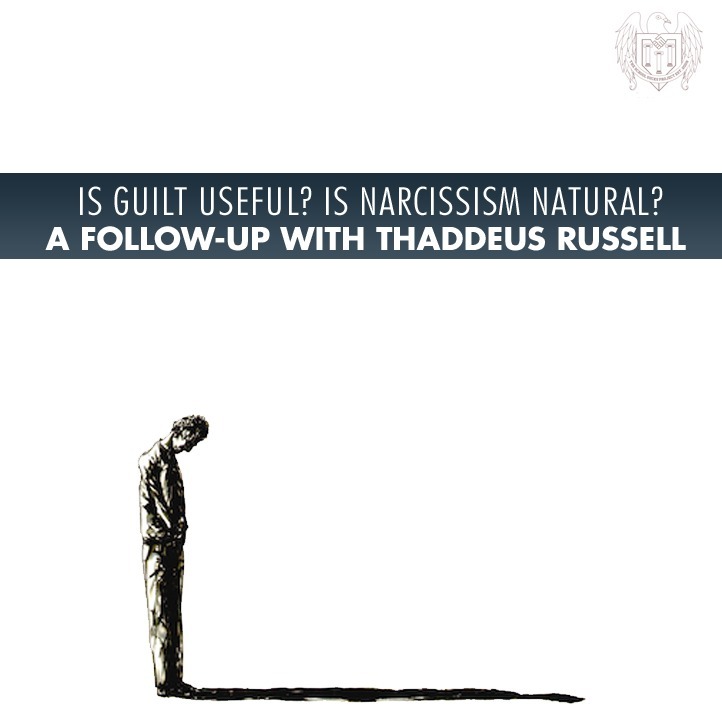Ep. 562: Is Guilt Useful? Is Narcissism Natural? – With Thaddeus Russell
IMPORTED FROM SCHOOLSUCKSPROJECT.COM

SchoolSucksProject.com – Education Evolution
This is a follow-up to Podcast #558: God, Grant Me the Serenity. Thad’s presentation in that epis…
Topics:
– Why Thad and I weren’t connecting in the first discussion
– Shame and guilt are information
– All behavior is narcissistic?
– Differing ideas about integrity
– Nathaniel Branden and the Six Pillars of Self-Esteem
Listener Input:
Scott M. – I thought it was a fascinating conversation. I think the premise of Thad’s that I found most problematic was how he defines his politics of self-interest. From what I can determine from the way he presented it on that call, his paradigm is similar to Nietzche and Stirner in that self-interest means whatever I want to the exclusion of the needs of anyone else. You attempted to counter that with a more generous understanding of enlightened self-interest that encompasses the well-being of others within a definition of self-interest, including a healthy society. I found it problematic that he interpreted your desire to contribute to the world as a form of narcissism. And it seemed to me that the only reason he saw not to drive while drunk was the possibility of getting caught and bearing the consequences. He didn’t quite say it, but it felt to me like he was on the verge of saying, if I killed or hurt someone while driving drunk it would be a bummer, but not anything I should feel guilt or shame about.
While I think our culture, and religion in particular, capitalizes and abuses our capacity for guilt and shame, I agree with Branden that there are times when it’s legitimate to feel them, as with any emotion, when we’ve violated our integrity or moral code. Of course Thad doesn’t recognize the legitimacy of the very notion of morality, which is a deeper and perhaps more important issue.
David G. – What bothered me most about this episode is the way the emotions of shame and guilt were dismissed as having no practical value in people’s lives. I disagree.
Around the 21 minute mark, Thad asks the question, "So what purpose does shame serve?…. Does it help you?"
He goes on to make a distinction between shame and guilt and states general working definitions for each.
Guilt: Bad feelings about things that one has done.
Shame: Bad feelings about oneself.
I take no issue with this distinction and these definitions. What I take issue with is Thad’s insistence that shame and guilt do no one any good. I propose that feelings of shame and guilt, in the moment, can be understood as emotional signals that one is not living up to one’s own personal standards. Of course, those standards are often the result of cultural programming imposed on the individual by fate, and to borrow from a previous comment, "without analyzing [this programming], we’re little more than slaves to our native collective." Prolonged shame and guilt do little but create a state of ongoing internal suffering that I am perfectly fine characterizing as doing no one any good. But if taken as signals that change is required in order to put an end to the suffering associated with shame and guilt, then the feelings themselves do serve a purpose, they have value. They are cues. They signal that one of two basic things has to change: one’s behavior; or one’s personal standards. Or maybe a bit of both. Either one changes one’s choices and behaviors and/or confronts the set assumptions/cultural programming that leading one to feel guilty or ashamed of one’s behavior, or one continues to suffer those negative feelings.
Around the 26 minute mark, Thad states: "Once you’re clear that you don’t like who you are or how you are when you’re drinking, then it’s very simple." Okay. Well, how does one become clear about that? Is it not through experiencing shame(continued)
Original source: https://www.podomatic.com/podcasts/schoolsucks/episodes/2018-05-03T07_52_59-07_00






